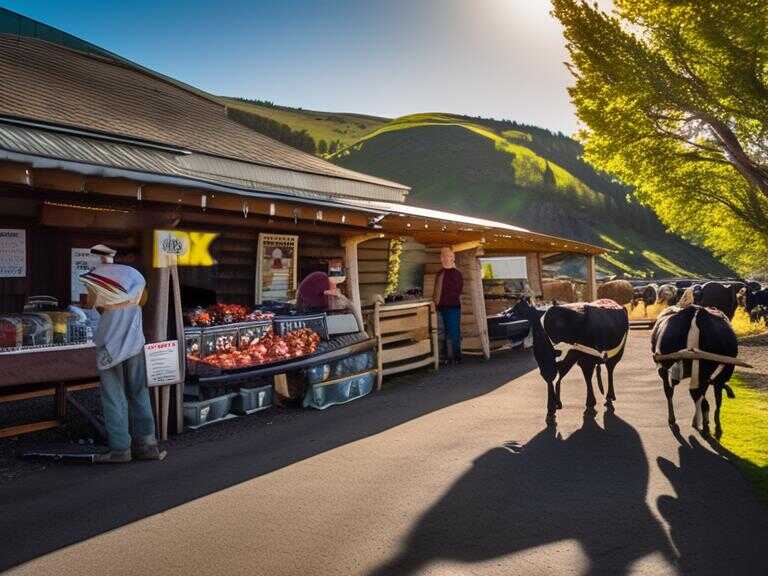
Basalt Farmers Market: Local Food Economies Thrive Amidst Challenges
Local producers face challenges, but innovative farmers like Dusty & Annie at Ripe & Ready Farm are finding success with sustainable practices.

The agricultural landscape is undergoing a significant transformation, driven by a growing consumer demand for locally sourced, sustainably produced food. This shift has led to the rise of farmers markets as vibrant hubs where communities can connect with local producers and experience the freshness and diversity of regional agriculture.
One such market thriving in the heart of agricultural activity is the Basalt Sunday Market. It serves as a testament to the resilience and ingenuity of small-scale farmers who are dedicated to providing their communities with high-quality, ethically sourced products. The market offers a platform for ranchers like Tony Prendergast, owner of Sunshine Beef, to share their stories and connect directly with consumers who value transparency and sustainability in their food choices.
The Challenges and Rewards of Sustainable Farming
Ranchers like Prendergast face a multitude of challenges in today's complex agricultural system. From navigating labor shortages to overcoming bureaucratic hurdles, maintaining a small-scale operation requires unwavering dedication and resourcefulness. However, the rewards are equally profound. By embracing sustainable farming practices, ranchers can minimize their environmental impact while producing flavorful, nutrient-rich products that nourish their communities.
The "near-field economy" concept championed by local producers emphasizes the importance of shortening the supply chain from farm to table. This approach not only reduces transportation costs and emissions but also fosters a deeper connection between consumers and the land that sustains them. By supporting local farmers, consumers can directly contribute to the preservation of agricultural heritage and the promotion of sustainable food systems.
The Growth of Local Food Systems
Across the country, there is a growing movement towards localized food systems, driven by a desire for greater transparency, accountability, and environmental responsibility. Farmers markets are at the forefront of this transformation, providing spaces where communities can gather, learn about local agriculture, and purchase fresh, seasonal produce directly from the producers. This shift towards local food systems has a ripple effect, stimulating economic growth in rural areas and strengthening the bonds between producers and consumers.
The success stories of farmers like Dusty and Annie, who operate Ripe & Ready Farm Fresh, exemplify the potential for growth and prosperity within sustainable agriculture. By adopting innovative farming techniques, such as the JADAM method, they are able to produce a wide variety of crops while minimizing their environmental footprint. Their commitment to sustainability is evident in their use of compost tea as a growing substrate, which harnesses the power of natural resources to create healthy soil and promote crop resilience.
The Importance of Education and Community Engagement
Organizations like the Central Rocky Mountain Permaculture Institute (CRMPI) play a vital role in educating individuals about sustainable agricultural practices. Through hands-on workshops and educational programs, CRMPI empowers communities to embrace permaculture principles, which focus on creating self-sufficient and ecologically balanced systems. By fostering a deeper understanding of sustainable agriculture, these organizations contribute to the long-term viability of local food systems.
The future of agriculture lies in our collective ability to support sustainable farming practices that benefit both people and the planet. Farmers markets serve as vital platforms for connecting consumers with local producers, promoting transparency, and fostering a sense of community around food. By embracing the principles of sustainable farming, we can cultivate a more resilient and equitable food system for generations to come.
As consumers, we have the power to make informed choices that support local farmers and promote sustainable farming practices. Every time we purchase fresh produce from a farmer's market, we contribute to the growth of a more sustainable and resilient food system.
Share news















